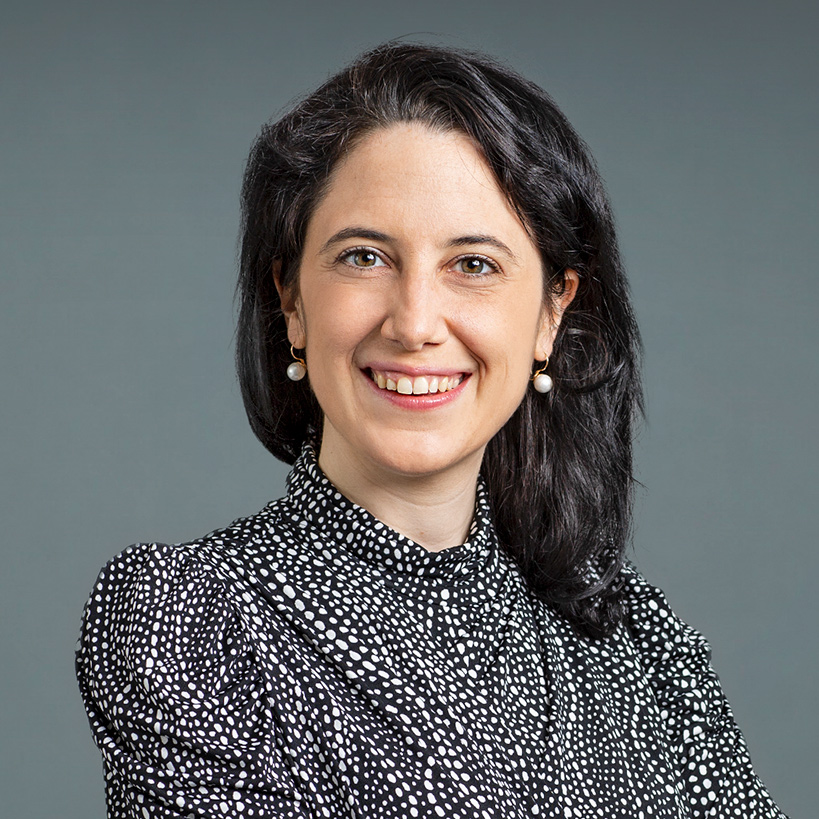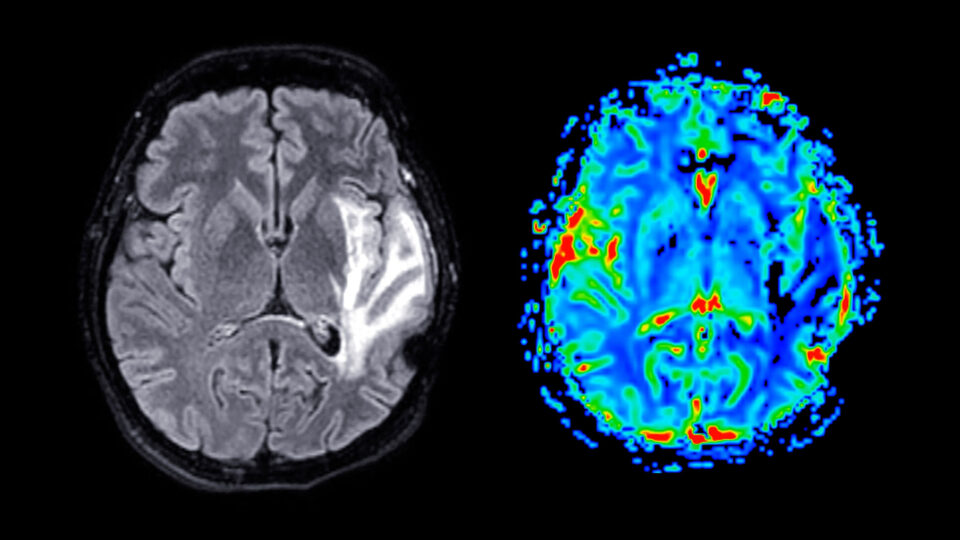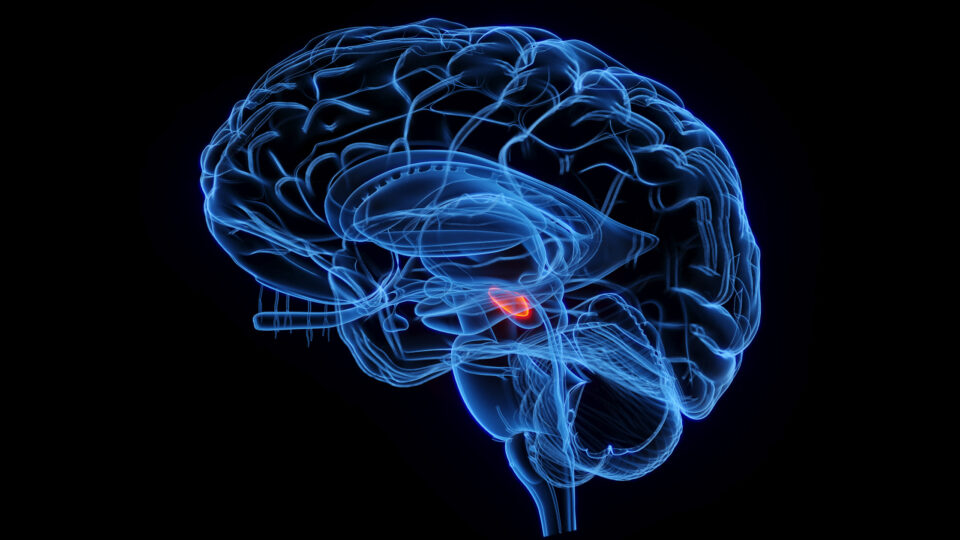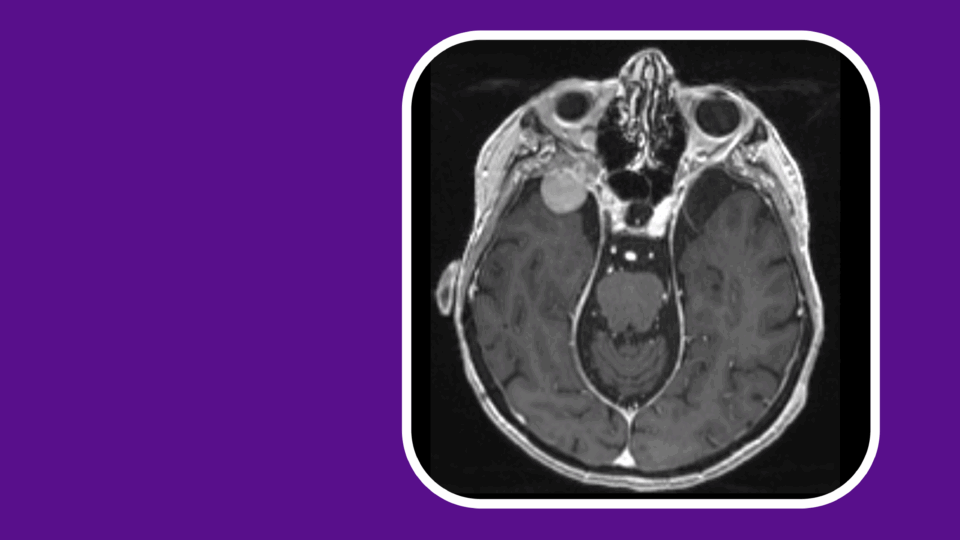Neurogenetics specialist Giulietta M. Riboldi, MD, PhD, was recently appointed executive director of the Marlene and Paolo Fresco Institute for Parkinson’s and Movement Disorders at NYU Langone Health. Established in 2015, the Fresco Institute advances world-class research, trains the next generation of movement disorder specialists, and fosters global collaboration through its connections with the Fresco Parkinson Institute Italia Onlus Foundation and Fresco Network sites across Italy and Germany.
Dr. Riboldi—one of the first to complete the Fresco Institute’s unique fellowship for Italian researchers—is an expert on the genetics of Parkinson’s disease and movement disorders and also serves as director of NYU Langone’s Clinical Research and Genetics Movement Division
Here, she discusses her path to becoming executive director and how the Fresco Institute is advancing a genetics-driven approach to movement disorders—through international collaboration, research into rare and young-onset conditions, and the training of future leaders in neurogenetics.
Physician Focus: You grew up in Italy and attended medical school there. How did you wind up as a movement disorders specialist in New York City?
Dr. Riboldi: During medical school, I developed a strong interest in both the clinical and the research aspects of neurodegenerative conditions. My deepening research interests coincided with my desire to understand where these conditions were stemming from, and in turn provide better care for my patients. For this reason, at the end of my residency, I pursued a research fellowship to study the molecular mechanisms of neurodegenerative diseases at the Motor Neuron Center at Columbia University.
That experience drove me to pursue a PhD in molecular and translational medicine back in Milan, after which I joined the Fresco Institute at NYU Langone in 2017 to complete a clinical and research fellowship in movement disorders. I was one of the first two fellows in the two-year program.
“I received outstanding training in the clinical and neurogenetics aspects of movement disorders, which was instrumental in shaping my career trajectory.”
Giulietta M. Riboldi, MD, PhD
During my fellowship at the Fresco Institute, I became more and more passionate about movement disorders and about genetics as a powerful instrument to understand these conditions, identify treatments, and counsel patients and their families. I received outstanding training in the clinical and neurogenetics aspects of movement disorders, which was instrumental in shaping my career trajectory, allowing me to combine dedicated clinical care with research aimed at making a meaningful impact on patients’ lives.
Physician Focus: What do you consider to be the biggest challenges in the field of movement disorders?
Dr. Riboldi: There has been an explosion in discoveries of new genetic causes of movement disorders, both in Parkinson’s disease and in other conditions, such as dystonia, chorea, and ataxia. A better understanding of the various genetic mutations is helping differentiate between disease subtypes, clarify disease mechanisms, and ultimately guide precision medicine approaches.
Although medications that address the symptoms of Parkinson’s disease are extremely important and the gold standard for treatment, our greatest challenge now lies in developing therapies that address the genetic mechanisms of the disease and its cognitive symptoms, areas for which we don’t have very effective treatments. Genetics can help move us in that direction.
“We need more experts who can interpret genetic testing to ensure better care for our patients, which includes making a correct diagnosis.”
For the other movement disorders, we need more experts in the field who can recognize and diagnose genetic forms of these diseases. Genetic testing is becoming part of our clinical practice and can make a difference in terms of treatment and counseling for patients, but it’s expensive, and accessibility isn’t broadly available across the world. We need more experts who can interpret genetic testing to ensure better care for our patients, which includes making a correct diagnosis.
Physician Focus: What are some of your priorities as executive director of the Fresco Institute?
Dr. Riboldi: The Fresco Institute was born out of the vision of [former chairman of Fiat] Paolo Fresco. He sought to create an international Parkinson’s institute in the U.S. that would foster cross-fertilization and offer early-career Italian neuroscientists and physicians opportunities to train in the U.S., then bring their experiences and new knowledge back to Italy. He valued bridging cultures and backgrounds to advance the treatment of Parkinson’s disease and related disorders.
I’m dedicated to this mission. One of my top priorities is to strengthen connections between our institute and the Fresco Network centers in Italy, through the international scientific conference that occurs once every two years, and regular online scientific symposia.
Toward this goal, some of the most successful initiatives are the fellowship programs that we offer at the Fresco Institute, as well as the fellowships for graduate students and postdocs at NYU Langone’s Institute for Translational Neuroscience. These programs are available to Italian physicians and researchers, who stay here for one year and then return to their original institutions while continuing to collaborate with us. Joining forces and investing in training and education is the best way to advance research and improve patient care.
Physician Focus: Which areas of ongoing research at the Fresco Institute do you find most promising for clinical impact?
Dr. Riboldi: We offer a research program for patients with undiagnosed genetic movement disorders that’s not widely available elsewhere. Patients who we strongly suspect have a genetic form of a movement disorder that we can’t identify despite genetic testing can enroll. The program provides a more in-depth data analysis to identify new genetic mutations. We’re having good results that can help advance the field and provide patients with a better understanding of their condition.
We’re also studying the genetics of young onset Parkinson’s disease, which starts before age 50. We suspect that most of these cases may have a genetic cause. The project is supported by the NIH and aims to identify new genetic variants that can help explain the condition.






